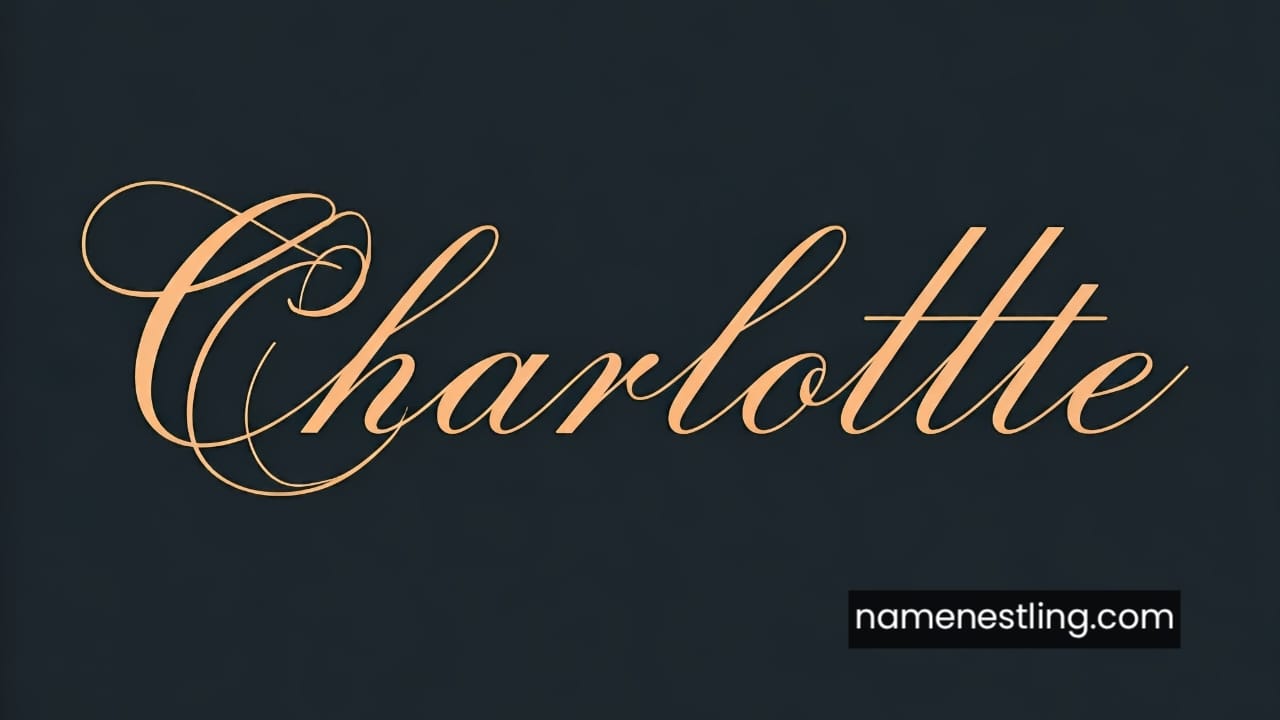The history of the name Charlotte is as rich and fascinating as its modern-day charm. A name tied to royalty, literature, and culture, Charlotte has maintained its allure through centuries. But where does it come from, and how did it evolve into the beloved name we know today? Let’s dive into the intriguing story behind the name Charlotte, exploring its origins, notable bearers, and its journey to the present.
Origins of the Name Charlotte
The name Charlotte is of French origin, derived from the male name Charles, which means “free man” or “manly.” As a feminine diminutive of Charles, Charlotte carries the same essence of freedom and strength, softened by its feminine charm.
Historical Timeline of Charlotte’s Origin
| Time Period | Event |
|---|---|
| Middle Ages | Charlotte emerges as a diminutive of Charles in France. |
| 17th Century | Gains popularity in royal circles across Europe. |
| 18th Century | Introduced to England, where it becomes associated with British royalty. |
| Modern Era | Recognized globally, maintaining its timeless appeal. |
Royal Connections of the Name Charlotte
The history of the name Charlotte is deeply entwined with royalty. It has been borne by queens, princesses, and noblewomen, solidifying its regal reputation.
Key Royal Figures Named Charlotte
| Name | Role | Significance |
|---|---|---|
| Queen Charlotte of Mecklenburg | Queen consort of King George III | Inspired cultural and botanical naming. |
| Princess Charlotte of Wales | Daughter of King George IV | Popularized the name in England. |
| Princess Charlotte of Cambridge | Daughter of Prince William and Kate | Revitalized modern interest in the name. |
Royal families across Europe helped spread the name Charlotte, associating it with elegance, power, and grace.
Literary and Cultural Significance
Charlotte has not only reigned in royal courts but also in literature and popular culture.
- Charlotte Brontë, the celebrated English author of Jane Eyre, is a prominent literary figure whose work continues to inspire generations.
- In fiction, Charlotte’s Web, the classic children’s novel by E.B. White, introduced the name to a new audience, associating it with kindness and wisdom.
Pop Culture Moments
| Medium | Example | Impact |
|---|---|---|
| Literature | Charlotte Brontë (Jane Eyre) | Boosted association with creativity. |
| Children’s Fiction | Charlotte’s Web | Made the name popular among younger audiences. |
| Film & TV | Characters like Charlotte York in Sex and the City | Cemented its modern appeal. |
Popularity Over Time
The name Charlotte has seen fluctuations in popularity but has remained consistently admired.
Charlotte’s Global Popularity
| Country | Popularity Rank (2024) | Why It’s Loved |
|---|---|---|
| United States | Top 5 | Classic charm, royal ties, and modern usage. |
| United Kingdom | Top 10 | Strong royal association. |
| France | Top 20 | Origin country, timeless appeal. |
The name’s resurgence in recent years is partly due to its royal connections, such as Princess Charlotte, and its presence in popular culture.
Variations and Similar Names
Throughout history, Charlotte has inspired various spellings and diminutives:
| Variation | Region | Notes |
|---|---|---|
| Carlota | Spain | A Spanish twist on Charlotte. |
| Carlotta | Italy | Common in Italian-speaking countries. |
| Lotte | Germany | Popular diminutive in German-speaking areas. |
These variations demonstrate the name’s adaptability and global charm.
The Timeless Appeal of Charlotte
The history of the name Charlotte showcases why it has endured through centuries. Its blend of royalty, literature, and cultural significance makes it a timeless choice for parents around the world.
Why Charlotte Remains Popular
- Royal Legacy: Its association with regal figures adds prestige.
- Literary Significance: Evokes creativity and intelligence.
- Modern Versatility: Works equally well for traditional and contemporary tastes.
Parents continue to choose Charlotte for its balance of history and modern appeal.
Fun Facts About the Name Charlotte
Here are some interesting tidbits about the name Charlotte:
- Charlotte is also the name of a popular dessert, the Charlotte Russe.
- Several cities in the U.S. are named Charlotte, including Charlotte, North Carolina.
- The flower Queen Charlotte’s lace is said to be named after Queen Charlotte.
These fun facts add layers to the name’s rich history and make it even more fascinating.
Conclusion
The history of the name Charlotte is a journey through time, marked by royalty, literature, and enduring charm. From its French origins to its global popularity today, Charlotte has proven to be a name that transcends trends.
Are you considering Charlotte for your baby or curious about its legacy? Share your thoughts in the comments below, or explore our other articles on names and their fascinating histories.
